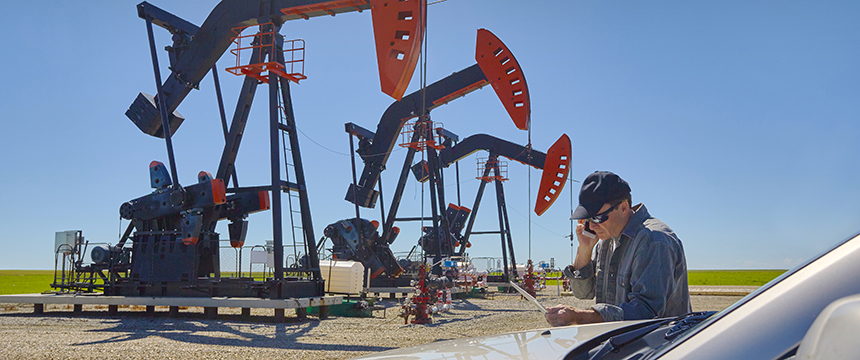
Over the past month, Texans have seen their lives drastically impacted by the COVID-19 pandemic. Businesses have been shut down, citizens have been ordered or strongly encouraged to stay at home, and many individuals find themselves working from home—or not working at all. It has become clear that the coronavirus will affect every sector of the American economy and the energy sector is no outlier. The economic downturn, combined with other complications in global oil and gas industry, have energy companies struggling—and sometimes failing—to pay their bills. In light of this new economic landscape, it is imperative that oilfield contractors and subcontractors understand how best to protect themselves and collect payment for their labor, services, and materials.
1. Negotiate
The quickest and often most cost-effective method of collecting debts during the economic downturn is to negotiate with your customer. Given today’s economic realities, cash-strapped oil and gas companies may be unable to make payments in the short-term. Therefore, it may make the most financial sense to begin collections on a graduated payment plan, or to provide extended payment terms. This will also help to build a stronger relationship with your customer during these difficult times. However, even if a mutually agreeable payment plan can be reached, it is still critical to file a statutory mineral lien timely to secure payment for the work you performed or materials you provided. If the six-month statutory lien deadline passes without you filing a lien, and your customer defaults on the negotiated payment plan, you will have lost your best leverage to secure payment. Chapter 56 of the Texas Property Code requires strict compliance with lien notice and filing deadlines, and knowing your rights can mean the difference between getting paid and not getting paid—particularly if your customer owes other suppliers, which is likely.
2. Who is Eligible for a Mineral Lien?
If you provide services or materials to the oilfield, you likely qualify. The eligibility requirements within Chapter 56 are very broad. Among those covered by this section are mineral contractors and mineral subcontractors who contract to perform “mineral activities.”
Mineral Contractor
One who performs labor or furnishes or hauls material, machinery, or supplies used in mineral activities under a contract with a mineral property owner.
Mineral Subcontractor
One who furnishes or hauls material, machinery, or supplies used in mineral activities under contract with a mineral contractor or with a subcontractor; performs labor used in mineral activities under contract with a mineral contractor; or performs labor used in mineral activities as an artisan or day laborer employed by a subcontractor.
Mineral Activities
Digging, drilling, torpedoing, operating, completing, maintaining, or repairing an oil, gas, or water well, an oil or gas pipeline, or a mine or quarry.
3. Critical Deadlines to Secure a Mineral Lien
Lien Deadline
To timely secure a mineral lien, you must file your lien affidavit with the county clerk of the county in which you provided labor or supplied materials no later than six months after the day the indebtedness accrues. Note, the day the indebtedness accrues is generally based on the last day that you furnished labor, service, or materials.
Extra Notice Deadline for Subcontractors
Mineral subcontractors are required to serve notice on the property owner no later than the 10th day before recording the lien affidavit discussed above. Note that this deadline only applies to mineral subcontractors. While mineral contractors are not required to provide notice to their customer before filing a mineral lien, doing so may be advantageous for sparking a dialogue and advancing negotiations.
Filing a Lawsuit to Enforce the Lien
In most circumstances, suit must be brought to foreclose on the lien within two years after the last day that the lien affidavit is permitted to be filed.
4. What does the Lien Cover?
A mineral lien filed under Chapter 56 is very broad and provides a lot of leverage for lien claimants to collect payment for their goods and services. The following categories of property are covered under a properly filed lien:
- The material, machinery, and supplies furnished or hauled by the lien claimant;
- The land, leasehold interest, oil or gas well, water well, oil or gas pipeline and its right-of-way, and lease for oil and gas purposes for which the labor was performed or material, machinery, or supplies were furnished or hauled, and the buildings and appurtenances on this property;
- Other material, machinery, and supplies used for mineral activities and owned by the owner of the property listed in the 2nd bullet; and
- Other wells and pipelines used in operations related to oil, gas, and minerals and located on the property listed in the 2nd bullet.
5. Understand the Costs
It is cheaper and faster than you might think. Often, a mineral lien can be recorded for less than $3,000. Costs relevant to perfecting and enforcing a lien include providing notice, filing the lien affidavit, performing title searches, and filing the lawsuit to enforce the lien.
It is important to understand the lasting impacts that the coronavirus will have on the energy industry. Contractors and subcontractors should expect disputes over payments, but need to be equipped to negotiate effectively and take the proper legal action to protect their payment rights.
For more information, please contact your Foley relationship partner or the Foley colleagues listed below. For additional web-based resources available to assist you in monitoring the spread of the coronavirus on a global basis, you may wish to visit the websites of the CDC and the World Health Organization.
Foley has created a multi-disciplinary and multi-jurisdictional team to respond to COVID-19, which has prepared a wealth of topical client resources and is prepared to help our clients meet the legal and business challenges that the coronavirus outbreak is creating for stakeholders across a range of industries. Click here for Foley’s Coronavirus Resource Center to stay apprised of relevant developments, insights and resources to support your business during this challenging time. To receive this content directly in your inbox, click here and submit the form.

